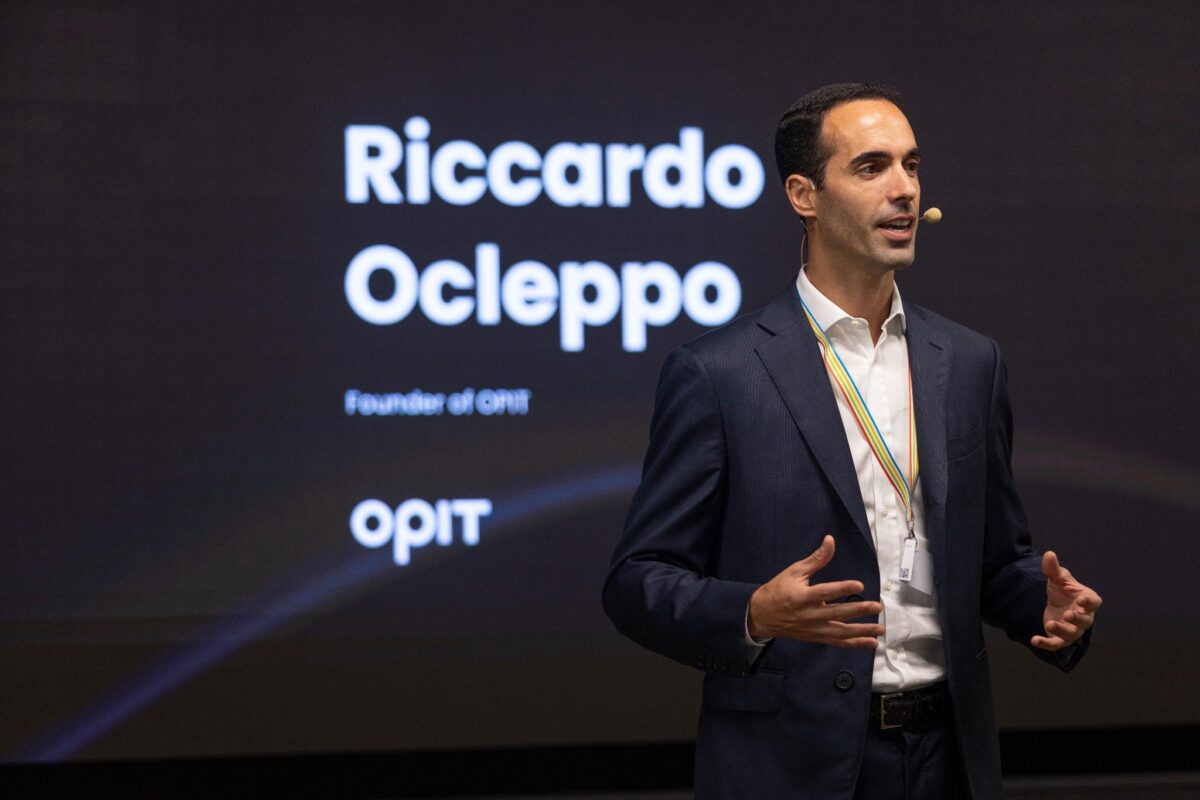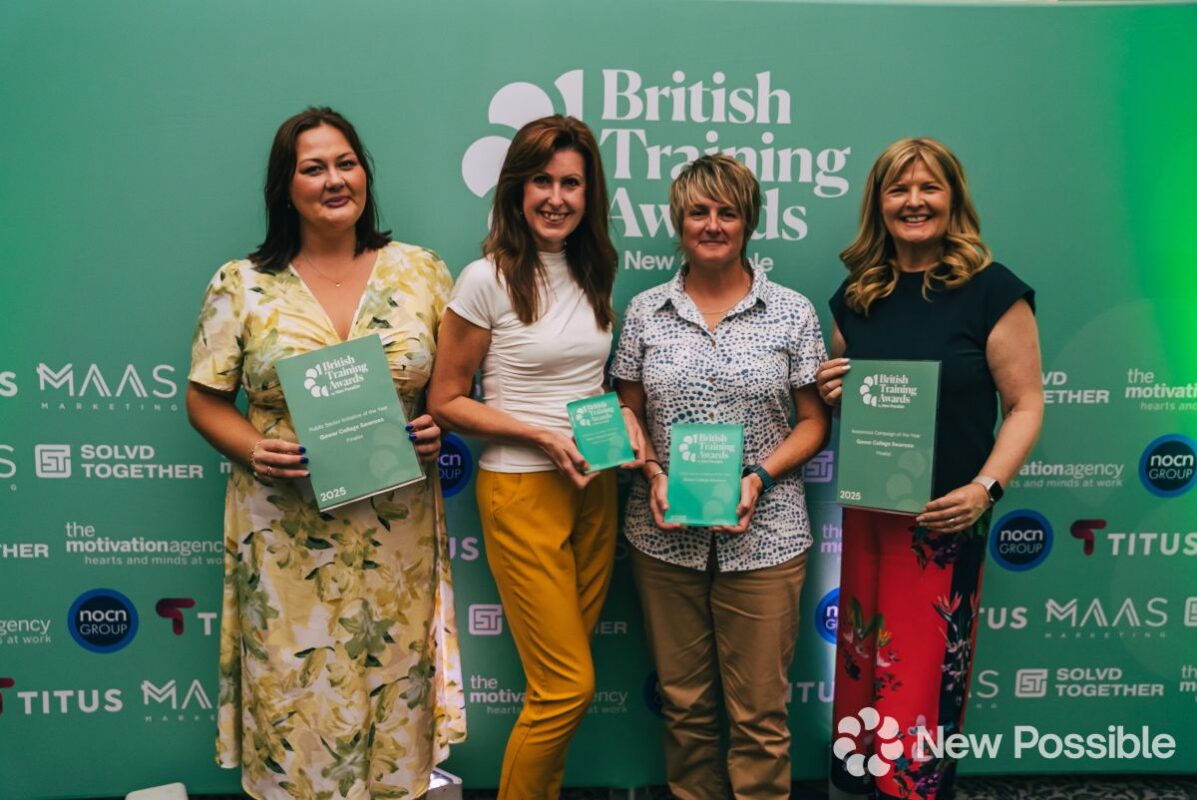Moving from industrialised education to personalised approaches – reducing ‘wastage’

Transitioning to personalised education, especially for neurodivergent learners, reduces talent wastage and fosters inclusivity. By adopting Universal Design for Learning (UDL) and targeted support, this approach caters to diverse learning needs, ensuring every student’s success. This shift is crucial for preparing students for modern workforce complexities, emphasising the value of individual differences and flexible standardisation in education. It will take bold leaders to make these changes.
Educational practices have remained consistent using an industrialised factory model and standardised approach to education since the early 19th Century. This approach was useful for mass delivery and our assessment processes mirrored this. We needed one way in and one way out for all and ensure everyone was doing the same thing. However, it also means this suit and favours some learners far more than others. The argument is often that we need to teach to large groups and undertake marking in a uniform manner to be fair and equal.
We need to acknowledge that is not equitable and we are wasting 10-15% of talent. We also need to be aware that individuals who could potentially do certain jobs that are in demand in STEM subjects are being lost along the way because they do not meet these narrow measures of ability.
Where do we lose students along the path?
Information access
The first barrier to inclusivity is often the accessibility of information about courses. Information needs to be presented in diverse formats that cater to all. For instance, avoiding complex language without, offering video descriptions, and providing material in formats accessible to screen readers can make a significant difference. We need to remind ourselves that you don’t know what you don’t know. For some students knowing how to access Disability Student Allowance or knowledge of Learning Support Fund in England for Apprenticeships could make a difference to making an application. Appropriate support can make all the difference with engagement and exclusion. Have you ever been to open days at colleges and universities? For some they are so exciting but they can be very noisy and appear somewhat chaotic for a student with sensory issues.
Application processes
Application procedures can be daunting and exclude some with neurodivergent conditions. Simplifying these processes, allowing for alternative forms of application submissions (like video or audio applications), and clearly stating that accommodations are available can help in making the application process more inclusive. The important point here is ensuring information is easily available for applicants so they can know how to ask for help at all stages of the application process.
Interviews
The traditional interview process can disadvantage some neurodivergent individuals. Offering interviews in various formats, such as written, in-person with adjustments, or via video call, allows applicants to choose the format in which they can best demonstrate their abilities. Providing interview questions in advance can also help applicants prepare better. We need to consider what skills align to a course or apprenticeship and if communication skills are not an essential component not score this component in the assessment process and consider other means of assessing the skills.
Training and teaching delivery approaches
Inclusive education must adapt to diverse learning ways and needs. This means considering universal design principles from the get-go. This takes time and this is often the challenge for many lecturers and tutors who need to create and deliver courses at speed. We can say we need materials in various formats, but the reality is that this takes time to do and there is a need to provide training on developing and delivering inclusively. Without investing in this, we continue to teach to the average student and need to accept drop out as the norm as we fail a sector of students in every cohort.
SLC data indicates that more than 40,000 UK students dropped out of university last academic year – around two thirds of these in the first year – an increase of 28% over the last five years. Dropout rates vary widely from course to course. Students doing a foundation year in Wales, had a 10.4 % rate last year. I wonder how many of these students are choosing to do such courses maybe neurodivergent but not diagnosed.
OfS data suggest that nearly 10% full-time first-degree students don’t complete their studies overall, and this increases to more than this where there is a disability reported.
Older data from OfS non-continuation data (2016) by disability shows that completion rates were lower for those with a disability and lowest among those with social or communication impairments (sic) and mental health conditions.
The delivery methods used are so important for engagement. How many students choose apprenticeships because they believe the more practical pathway will suit their way of learning and then stumble once again when there is written course work or timed assessments. Interestingly, data from the 2023 UK Engagement Survey (UKES) reported that those students learning via a mix of in-person and virtual delivery were least likely to drop out.
Data is only as good as how it is gathered and how groupings are defined. We know that these are clustered in different ways where autism is put in one group and other conditions (not including ADHD) are in another grouping. This does not make sense at all as neurodivergent traits and conditions co-occur frequently. We also know that individuals coming from lower socio-economic groupings and some specific ethnic groups in society have a far less chance of gaining a diagnosis and so don’t share, can’t share, or disclose this information. We also know specific groups who have greater financial pressures on them are also more likely to drop out. This is an intersectional issue not just a neuroinclusive one.
Assessment of skills
Assessment of skills too often follows a one-size-fits-all approach that doesn’t account for neurodivergent students. If school exams were a challenge in showing knowledge in a format that only suits specific sets of learners, then repeating this exercise in further and higher education will only lead to more losses for those capable enough to get through the latter hurdle. An ideal scenario of a range of assessment methods where students can choose which one works best for them to show their skills would be the holy grail. It will need a mindset shift. We need to be honest and recognise that for students that, for example, find rapid recall, handwriting, focusing in a room with others for any length of time without moving, will be disadvantaged.
We can see parallels of education using systems that link to manufacturing principles and standardisation. The concept of standardisation originated near the turn of the 19th century. Before that time, products were made individually, with unique, hand-fitted parts. Eli Whitney (1765-1825), inventor of the cotton gin, has been credited with developing the concept of standardisation, which he first applied to rifle manufacture in 1797.
What can we do differently and what are we doing differently?
- Implementing Universal Design for Learning (UDL): UDL principles can help in creating flexible learning environments that accommodate the variability of learners.
- Offering mentorship programmes and targeted support can make a significant difference especially for students lacking confidence on what support they require. This cannot be only for those with some formal diagnoses otherwise it once again misses the students who are most likely to drop out along the way.
- Fostering an inclusive culture: Cultivating an environment where differences are recognised, valued, and seen as a strength is crucial for inclusivity. This requires lecturers and teachers to consider communication differences in themselves and their fellow students.
- Continuous feedback and improvement: We don’t know unless we ask! Establishing mechanisms for regular feedback from neurodivergent students on their educational experience can guide further improvements in inclusivity.
Great practices are starting to happen
An illustrative example of these principles in action can be seen in the engineering programmes of some prominent universities, where the standardisation of assessment has been carefully balanced with the need for customisation. Here, while core competencies in mathematics, physics, and systems thinking are assessed through standardised tests to ensure a consistent level of proficiency across all students, project-based assessments have been introduced to allow students to demonstrate their understanding in contextually rich, real-world problems.
This approach mirrors the manufacturing sector’s shift towards customisable solutions within a standardized framework, ensuring quality and efficiency while recognising individual talents and different learning needs.
Such educational practices not only prepare students for the complexities of the modern workforce but also underscore the importance of flexibility within standardisation, embracing a holistic view of quality and achievement in both education and manufacturing. This is a start, but we do need widespread adoption across education. This will take leaders to take bold steps and work together to ensure we don’t see another century pass and accept the loss of swathes of talent who could make a significant difference to improving the chaotic world we live in.
By Professor Amanda Kirby, MBBS MRCGP PhD
Professor Amanda Kirby is CEO Do-IT Solutions Ltd. Emeritus professor University of South Wales, Honorary Professor at Cardiff University, Visiting Professor, Faculty of Health Sciences, Trinity College Dublin.
FE News on the go
Welcome to FE News on the Go, the podcast that delivers exclusive articles from the world of further education straight to your ears.
We are experimenting with Artificial Intelligence to make our exclusive articles even more accessible while also automating the process for our team of project managers.
In each episode, our thought leaders and sector influencers will delve into the most pressing issues facing the FE.











Responses